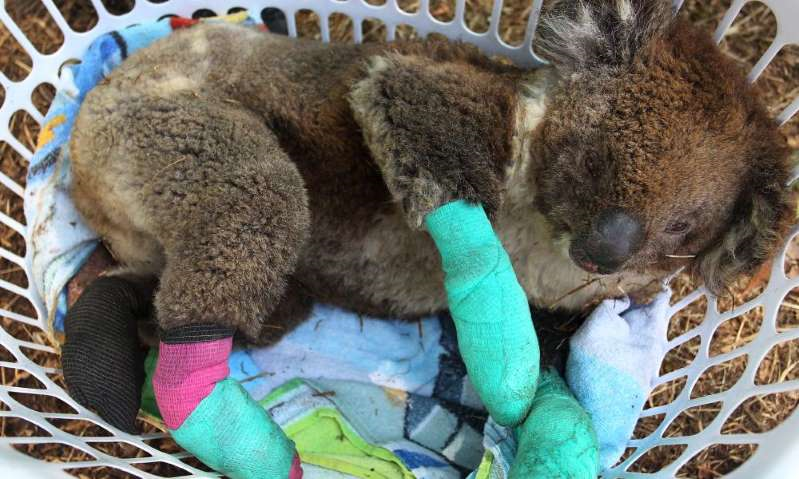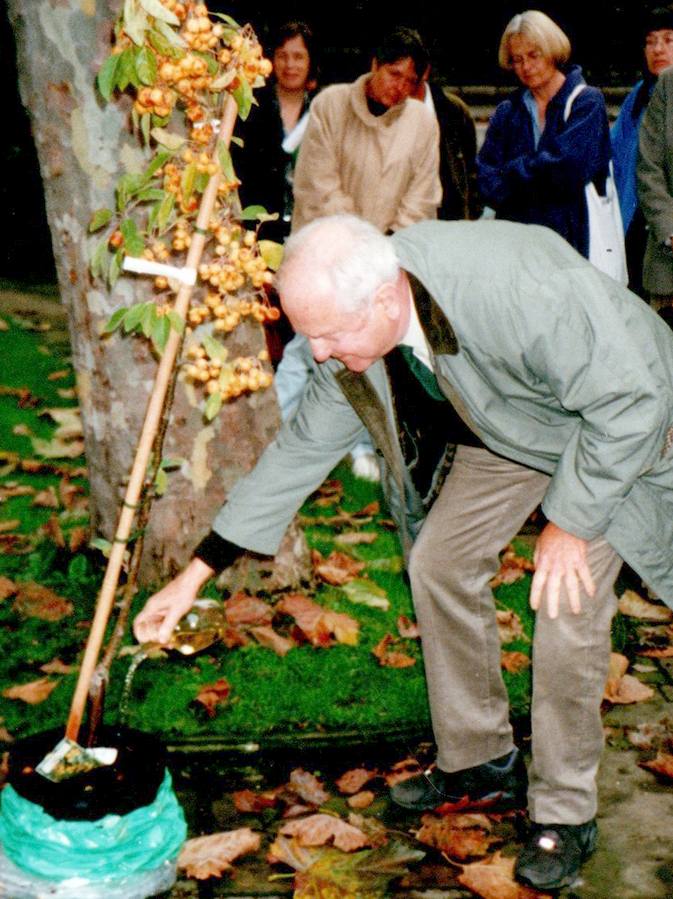
Over the past months, wildfires have devastated many parts of Australia, with some sources estimating that nearly 18 million acres of land have burned since July 2019, destroying around 2000 human homes and claiming 26 human lives.
As is rarely the case when ecological disasters strike, this time not only human losses but also animal losses have been counted, with estimates of wild animals having perished in the fires surpassing the billion, depending on the source. Perhaps, as they so fiercely embody the damage that human-made climate change is causing to our planet, the fires have awakened us to the plight of other creatures. Perhaps the disparity in numbers between affected humans and affected animals is so great that, for once, we have felt it acceptable to count animal victims too. Perhaps we value free-living animals, particularly if of rare species, more than we value the animals we keep captive in large numbers. Perhaps it is easier to feel for cute mammals with Bambi-like features. Whatever the motives, images of koalas, wallabies, kangaroos and other animals killed, injured or displaced by the fires have appeared on various media, moving hearts around the world, raising much needed funds in support of the many rescue efforts. Seeing such manifestations of concern for our nonhuman brothers and sisters, locally and globally, has been truly heartening.

In contrast, during the more recent outbreak of coronavirus in China, the plight of the animals trapped in the live animal market from which the virus appears to have spread has seemingly failed to attract worldwide compassion. Although different sources have recognised the outbreak as a consequence of humans’ increasing expansion and inconsiderate encroachment on wild habitats and the animals who rely on them, hardly any thoughts seem to have been spared in the media for the animal victims of this kind of trade. Perhaps we are so worried about the risks that the outbreak presents to humans that we are unable to feel concern for the animals involved. Perhaps it is harder for us to empathise with the animals sold at that market, seemingly so different from us, such as fishes and reptiles, or so easily (re)produced in large numbers, such as chickens. Perhaps we are just incapable of connecting with those we consider ‘food’, as though their life and suffering did not matter. Whatever the motives of such indifference, the animals crammed in the cages and tanks piled-up along market streets suffer terrible conditions before being violently killed, and it is very disheartening that such suffering should pass unnoticed.
Whether brought on by wildfires or by the hand of a butcher, the death of any animal is an absolute loss for the individual whose life is taken away, often at the additional cost of immense suffering. Sadly, the creaturely limitations of our human heart seem to only allow us to feel the tragic plight of some animals but not others; and all too often we see our fellow creatures merely as resources. Indeed, as the United Kingdom prepares to forge its way outside the European Union after Brexit, some have suggested that animal welfare considerations should not get in the way of profitable trade deals with other countries; as though the problem with things like ‘chlorinated chicken’ were just an issue of product quality control; as though behind such a ‘product’ there weren’t countless individual stories of unimaginable suffering. Perhaps chickens are not deemed rare enough, majestic enough or beautiful enough to be valued as individuals whose suffering does matter; perhaps their reproduction and modification is so fully under human control that we cannot see their unique value. However, often it is the very qualities that many of us admire in untamed, majestic, beautiful and rare wild animals that put them in harm’s way. Countless wolves, bears, lions, giraffes, elephants and animals of many other species are killed every year across the world. Trophy hunters pay huge amounts of money to take their lives, only to display their corpses on their living room walls. As we approach Easter, a moving passage dedicated to Mary in Pope Francis’ encyclical Laudato Si’ comes to mind, in which the Holy Father states how “just as her pierced heart mourned the death of Jesus, so now she grieves for the suffering of the crucified poor and for the creatures of this world laid waste by human power” (pg.113).
If, from our position of power, we see animals merely as resources we likely end up failing to see them as individuals capable of suffering and desirous of life, as we humans are; and if we cannot see animals as sentient individuals whose lives matter to them, we cannot empathise with them and are likely to reduce them to commodities. However, as Pope Francis reminds us, all animals have their unique intrinsic value and their commodification is contrary to God’s view of and care for His creatures. In Laudato Si’, the Holy Father reminds us how for St Francis “each and every creature was a sister united to him by bonds of affection” and how he “felt called to care for all that exists” (pg. 11). Today, perhaps no movement expresses this ethos better than ethical veganism and in early January a rapidly growing number of ethical vegans have celebrated a landmark ruling by a UK Court of Law, which has recognised ethical veganism as a philosophical belief protected under the law. This is an unprecedented victory for those who believe that compassion and care towards others should extend to all creation and it will no doubt encourage many others to choose a more compassionate and caring lifestyle. CCA has welcomed the ruling enthusiastically and likely no one would have welcomed it more than our Chair Emeritus Dr Edward Echlin, who passed away in late December. Edward was a pioneer of Christian ecology; he was concerned with environmental issues when these were yet to enter society’s consciousness, tirelessly advocating the need to address them from the recognition that all creatures are interconnected within a cosmic covenant of Divine love. He was a beacon of light for anyone who sought a better world for animals and his contribution to CCA has been invaluable.

Recently remembered in our 90th Anniversary booklet, Edward and others like him have enabled CCA to become what today is the leading international Catholic organisation for animals. For over 90 years, through its advocacy and educational work, CCA has endeavoured to bring about a world in which humans feel the way St Francis did, a world in which animals are not exploited as commodities but cared for as brothers and sisters. By working alongside international organisations to protect marine animals, by celebrating those who fight the merciless exploitation of animals in farming, by denouncing and supporting calls to end trophy hunting and blood spectacles, by bringing its message of concern for animals to schools and other institutions across the globe, and through many other activities, CCA has been helping the Church and broader society to build a more compassionate and caring world. However, this has only been possible thanks to the generosity of our supporters, who are our greater strength. So, please, consider supporting our advocacy and educational work by donating, subscribing to The Ark, becoming a member, leaving a gift in your will, and letting your friends and family know about CCA.


Comments are closed.